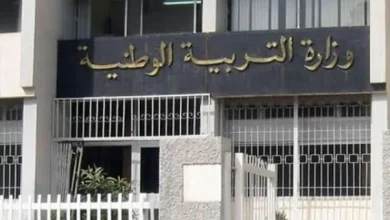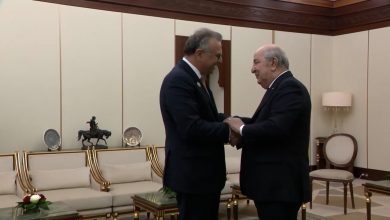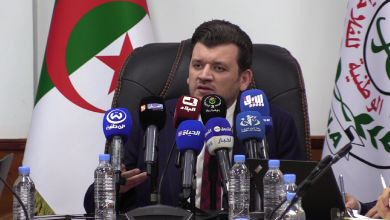Tensions along the Lebanese-Israeli border have flared once again, jeopardizing the already fragile ceasefire agreement brokered in September 2024 that brought an end to a year-long conflict. On Saturday evening, two individuals were killed and another injured in a pair of Israeli airstrikes targeting vehicles in southern Lebanon. These incidents represent a significant breach of the cessation of hostilities agreement between Israel and Hezbollah, raising concerns about a potential return to full-scale conflict.
According to the Lebanese National News Agency, the first strike targeted a motorcycle in the town of Qlaiaa, resulting in the immediate death of the rider. Shortly thereafter, a second strike hit a car in the town of Harouf, located in the Nabatieh Governorate. A statement from the Lebanese Ministry of Public Health confirmed one fatality and one injury from the Harouf attack, specifying that an Israeli drone targeted a vehicle near the primary school on the Harouf-Jbaishit road.
The Israel Defense Forces (IDF) swiftly claimed responsibility for both strikes in a statement released via the social media platform X. The IDF asserted that the targets were operatives belonging to Hezbollah’s elite Radwan Force. According to the IDF, the strike in Qlaiaa resulted in the death of Mohammad Akram Arabia, identified as a member of the Radwan Force. The IDF accused Arabia of actively participating in efforts to “rebuild combat capabilities and terrorist infrastructure” within southern Lebanon.
In a separate statement concerning the attack in Jbaishit, the IDF claimed to have killed Zein al-Abidine Fatouni, described as a commander within the anti-tank missile unit of the Radwan Force. The IDF alleged that Fatouni’s activities constituted a “violation of understandings with Lebanon.” The IDF further stated that Fatouni’s role involved overseeing the deployment of advanced anti-tank weaponry along the border, posing a direct threat to Israeli security.
Hezbollah issued a brief statement acknowledging the death of Mohammad Akram Arabia, announcing his funeral procession to be held in Qlaiaa later that evening. However, the statement refrained from commenting on the details of the strikes or addressing the allegations made by the Israeli military. The lack of a more comprehensive response from Hezbollah has fueled speculation about the group’s potential next move.
These latest incidents follow closely on the heels of similar strikes just two days prior, which resulted in the deaths of three people and injuries to two others in the Nabatieh region. In those attacks, Israel claimed to have assassinated Abbas Hassan Karki, a senior Hezbollah commander. The frequency and intensity of these strikes point to a deliberate escalation of hostilities along the border.
The Lebanese-Israeli border has been a persistent flashpoint for decades, marked by periodic outbreaks of violence despite numerous attempts to establish lasting peace. The September 2024 ceasefire, while initially providing a period of relative calm, has been increasingly strained by mutual accusations of violations. The core issues underlying the conflict remain unresolved, including the disputed territories and the presence of Hezbollah forces in southern Lebanon.
For more information about Algeria, check our dedicated section.
A key point of contention is the ongoing Israeli occupation of five strategic hills along the border, seized during the 2024 war. Lebanon has consistently demanded a full Israeli withdrawal from these territories, along with an end to all aerial and ground incursions into Lebanese airspace and territory. These demands have been repeatedly ignored by Israel, further fueling tensions and contributing to the cycle of violence.
The recent escalation raises serious questions about the viability of the current ceasefire agreement. With both sides accusing the other of violations and engaging in increasingly aggressive actions, the risk of a return to full-scale war is undeniably growing. The international community has urged both Israel and Lebanon to exercise restraint and de-escalate the situation, but these calls appear to have had little impact thus far.
The United Nations Interim Force in Lebanon (UNIFIL), tasked with monitoring the ceasefire and maintaining stability along the border, has expressed deep concern over the recent developments. UNIFIL has called on both parties to abide by their commitments under Security Council Resolution 1701, which established the ceasefire in 2006. However, UNIFIL’s ability to effectively enforce the resolution is limited, and the escalating tensions are testing its capabilities.
The current situation presents a significant challenge to regional stability. The potential for a wider conflict involving Hezbollah and Israel carries serious implications for the entire Middle East. International efforts to mediate a lasting peace between the two sides are urgently needed to prevent a further deterioration of the situation and avert a potentially devastating war. The Algerian government, traditionally a supporter of the Palestinian cause and a vocal critic of Israeli policies, has yet to issue an official statement on the recent escalation. However, diplomatic sources suggest that Algeria is closely monitoring the situation and is prepared to play a constructive role in any efforts to de-escalate tensions and promote a peaceful resolution.
The deaths of civilians in these recent strikes further highlight the human cost of the ongoing conflict. The Lebanese government has condemned the Israeli attacks and called for an immediate cessation of all hostilities. However, Lebanon’s weakened political system and economic crisis limit its ability to effectively respond to the escalating violence. The international community must step up its efforts to provide humanitarian assistance to the affected communities and work towards a sustainable solution that addresses the root causes of the conflict.



